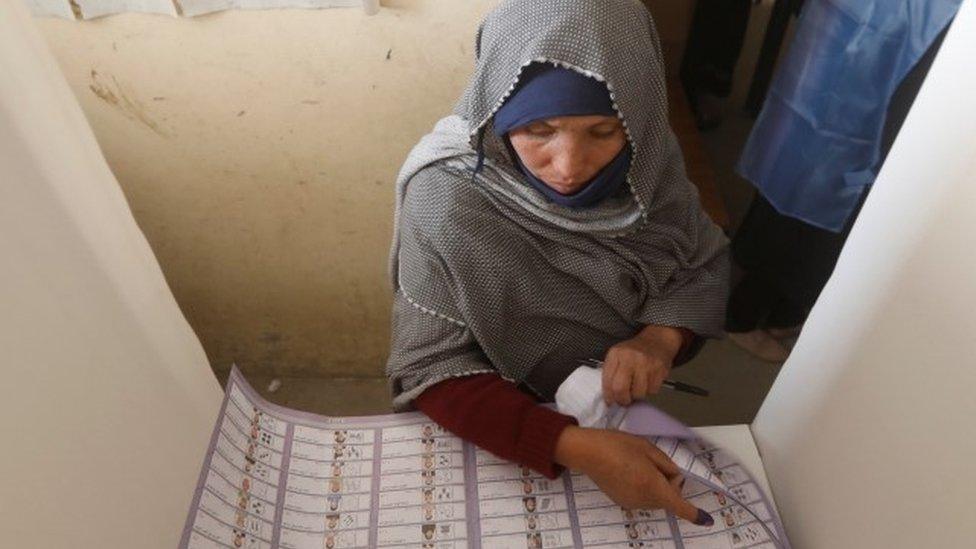Kabul suicide bomber kills dozens at gathering of clerics
- Published
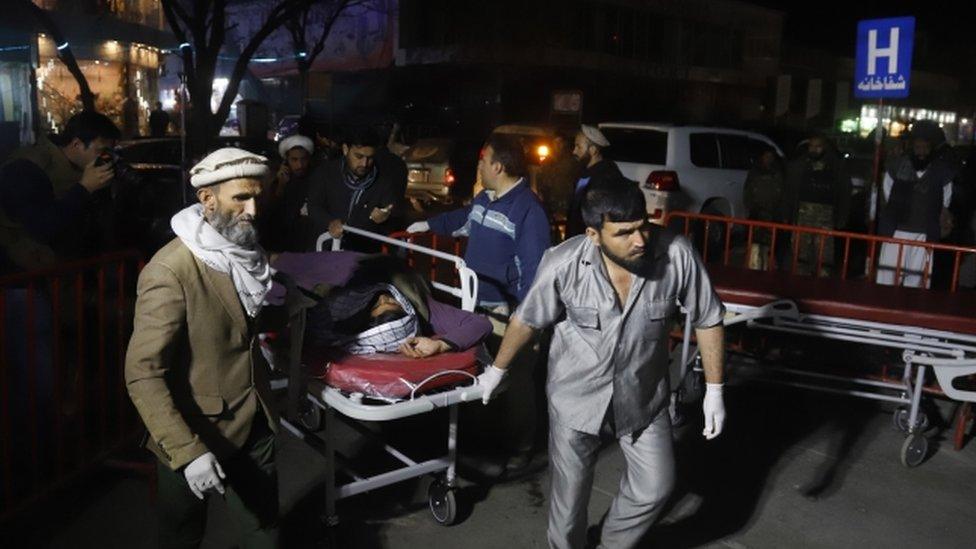
This is one of the deadliest attacks in Kabul in recent months
A suicide bomb attack on a gathering of religious scholars in the Afghan capital, Kabul, has killed at least 50 people.
At least 83 people were also wounded as the clerics met at the Uranus wedding hall, a large banqueting complex near the airport, to mark the birthday of the Prophet Muhammad.
It is one of the deadliest attacks in Kabul in recent months.
No-one has yet claimed it was behind the blast.
So-called Islamic State and the Taliban have carried out a string of attacks in recent years.
But the Taliban has denied involvement and condemned the attack.
What happened at the hall?
Some 1,000 people were said to be in the complex at the time of the explosion.
Basir Mujahid, a spokesman for Kabul police, said that "Islamic scholars and their followers had gathered to recite verses from the holy Koran to observe the Eid Milad-un-Nabi festival".
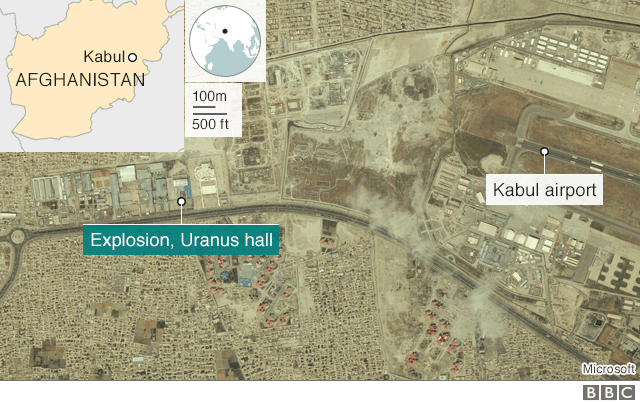
The suicide bomber gained entry and headed for the centre of the gathering, where he detonated his explosives.
Religious studies lecturer Mohammad Hanif said there was a deafening explosion and "everyone in the halls was screaming for help".
Images from the scene showed ripped and blood-stained clothes, broken glass and overturned furniture.
Afghan President Ashraf Ghani condemned the attack as an "unforgivable crime" and declared Wednesday a day of national mourning.
Who could have been responsible?
The Islamic State in Afghanistan group, sometimes known as Islamic State Khorasan, has claimed responsibility for most of the recent deadly attacks of this kind.
It said it was behind two attacks in Kabul in August that killed dozens of people.
Dozens of people were also killed across the country as voters cast ballots in the nation's parliamentary elections in October.
The Taliban have also continued attacks, although many of them target security forces.
Are there moves to end the violence?
There are some with the Taliban.
This month, Taliban militants for the first time attended an international meeting, hosted by Russia, to discuss ending the decades-long conflict.
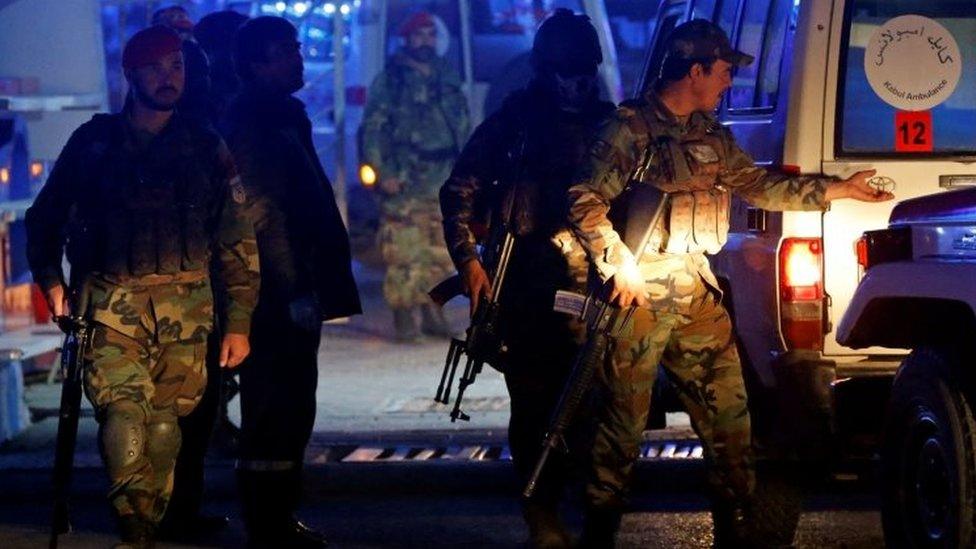
The regularity of attacks continues to stretch security forces
The US special envoy for Afghanistan has also been meeting Taliban officials in Qatar, but no agreement has so far been reached.
The Taliban's power and reach have surged since foreign combat troops left Afghanistan in 2014.
The Islamic State group is another matter. Opposed by the Taliban and considered a major threat by Western powers, the Sunni militants aim to turn the conflict in Afghanistan into a sectarian war with Shias, who they consider apostates.
The violence is not easing. Civilian deaths and injuries have hit record highs. Casualty figures for the conflict, which began in 2001, are the highest since the UN started keeping records in 2009.
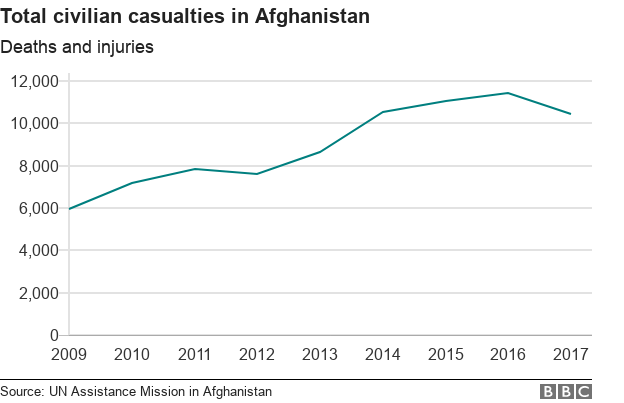
- Published23 October 2018
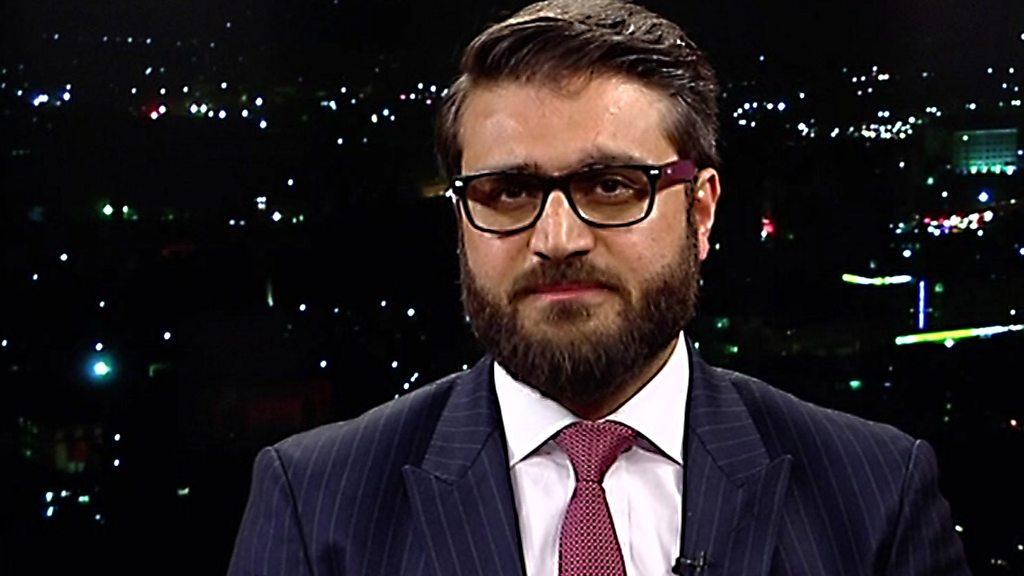
- Published21 October 2018
